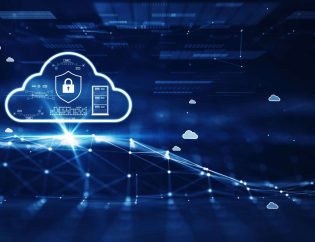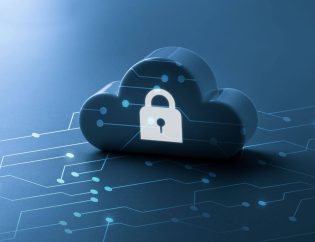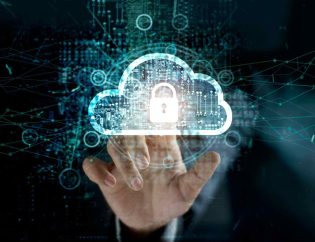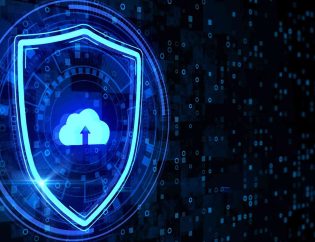
Table of Contents
Introduction
Understanding Cloud Security and Cybersecurity
Cloud Security vs Cyber Security: Key Differences
Which Security Strategy Is Right for You?
Evolving Security Challenges and Future Trends
Best Ways to Keep Your Data Safe
How AI and Automation Make Security Better
Cybersecurity in the Era of Remote Work
How People Make Security Mistakes
Conclusion
FAQs
Introduction
In today’s digital world, businesses need to decide between cloud security vs cyber security to keep their data safe. Both are important but focus on different areas. Knowing the difference can help create the right security plan for your company.
Understanding Cloud Security and Cybersecurity
Cloud security and cybersecurity are both important for keeping digital information safe. While they have some similarities, they focus on different areas of security.
Cloud Security
Cloud security protects data, apps and systems that are stored and used online. It includes:
- Data Encryption: Changes information into a secure code so only authorized people can read it.
- Access Control: Makes sure only the right users can get into cloud systems.
- Compliance Management: Helps businesses follow security laws and industry rules.
- Security Tools: Uses special tools like CASBs (Cloud Access Security Brokers) to manage access and CSPM (Cloud Security Posture Management) to prevent security mistakes.
Cybersecurity
Cybersecurity is a bigger topic that covers protection for everything digital, including cloud systems, networks, devices and programs. It includes:
- Network Security: Stops hackers and viruses from getting into networks.
- Device Protection: Keeps computers, phones and other devices safe from cyber threats.
- Incident Response: Helps businesses quickly find and fix security problems.
- Risk Management: Finds weak spots and helps prevent future security threats.
Cloud Security vs Cyber Security: Key Differences
| Feature | Cloud Security | Cybersecurity |
| Scope | Cloud | Digital |
| Data Protection | Encryption | Comprehensive |
| Access Management | IAM | Authentication |
| Threat Protection | CASBs, CSPM | Firewalls, Anti-malware |
| Compliance | Cloud-specific | Industry-wide |
Which Security Strategy Is Right for You?
Choosing between cloud security and cybersecurity depends on your business needs:
- Business Model: If you store data and run apps in the cloud, cloud security is a must. If you use both cloud and on-site systems, cybersecurity offers complete protection.
- Data Sensitivity: Highly sensitive data, like financial or customer records, needs strong cybersecurity beyond cloud security.
- Regulatory Compliance: Some industries, like healthcare and finance, require both cloud and cybersecurity measures to meet legal requirements.
Most businesses benefit from using both cloud security and cybersecurity together for the best protection.
Evolving Security Challenges and Future Trends
Cyber threats are constantly advancing, making strong security measures essential. Businesses must stay ahead of new risks to protect their data and systems. Some key challenges include:
- Zero-Day Attacks: Hackers take advantage of unknown security weaknesses before patches are available, making them hard to prevent.
- Human Error: Many security breaches happen due to mistakes like weak passwords, accidental data sharing, or falling for phishing scams.
- AI-Powered Threats: Cybercriminals use artificial intelligence to launch more sophisticated and automated attacks.
Emerging Security Trends
To tackle these challenges, security experts are focusing on innovative solutions:
- Zero Trust Architecture: This approach continuously verifies users and devices before granting access, reducing the risk of unauthorized entry.
- Quantum Encryption: Advanced encryption methods using quantum computing will offer stronger protection against hacking attempts.
- AI in Security: Artificial intelligence is being used to detect threats faster, automate responses and improve overall defense strategies.
By adopting these evolving security measures, businesses can strengthen their defense against future cyber risks.
Best Ways to Keep Your Data Safe
To protect important information and prevent cyber threats, businesses should follow these simple security steps. These methods help keep data safe, stop hackers and meet security rules.
- Use Multi-Factor Authentication (MFA): Add extra security when logging in by using more than just a password. This can include a fingerprint, a code sent to your phone, or a security question. It makes it harder for hackers to break in.
- Encrypt Important Data: Lock up your data by turning it into a secret code. Even if hackers steal it, they won’t be able to read it without the special key. Use encryption for data stored in your system and when sending it online.
- Do Regular Security Checks: Check your security often to find weak spots and fix them before hackers take advantage. This also helps businesses follow security rules like GDPR and HIPAA.
- Limit Access with Zero Trust: Don’t trust any user or device by default. Always check who is trying to access important systems and only give access to those who truly need it.
- Watch for Threats Non-Stop: Use security tools that constantly monitor your network for threats. These tools can warn you about attacks before they cause damage, allowing you to stop them in time.
How AI and Automation Make Security Better
AI and automation are helping businesses protect their data and systems more effectively. They make security faster, smarter and reduce human mistakes. Here’s how AI improves security:
- Finding Threats Quickly: AI scans large amounts of data and spots unusual activity that could be a cyberattack. It detects threats much faster than humans.
- Stopping Attacks Fast: If AI finds a security problem, it can take action immediately. It can block access, isolate affected devices, or alert security teams before serious damage happens.
- Predicting Future Attacks: AI learns from past cyberattacks and helps businesses prepare for future threats. This keeps systems safe before hackers can strike.
- Blocking Phishing Scams: Hackers try to trick people into sharing passwords or personal data through fake emails and websites. AI can detect and block these scams before they reach users.
- Getting Smarter Over Time: Cyber threats keep changing, but AI keeps learning. It updates security systems automatically to stay ahead of new dangers.
Cybersecurity in the Era of Remote Work
Working from home has made online security more important than ever. Hackers look for weak spots in home networks and devices to steal data. To stay safe, businesses should follow these simple steps:
- Protect Work Devices: Employees should use company-approved laptops and phones with security software, firewalls and VPNs to keep data safe. Regular updates and antivirus protection help prevent attacks.
- Limit Data Access: Not everyone needs access to all company data. Businesses should allow employees to see only the information they need for their job. Using strong passwords and multi-factor authentication (MFA) adds extra security.
- Train Employees: Many cyberattacks happen because of human mistakes. Employees should learn how to spot fake emails (phishing), create strong passwords and safely handle company data. Regular training helps keep everyone aware of new threats.
How People Make Security Mistakes
Even with strong security tools, people can still make mistakes that put data at risk. Many cyberattacks happen because of simple errors. That’s why businesses need to teach employees how to stay safe online. Here are some common mistakes:
- Weak Passwords: Some people use easy passwords like “123456” or “password.” Hackers can guess these quickly. Using strong passwords and two-step verification (MFA) makes accounts safer.
- Falling for Fake Emails (Phishing): Hackers send emails that look real but are fake. They trick people into sharing passwords or clicking harmful links. Employees should always check emails carefully before clicking anything.
- Wrong Cloud Settings: If cloud systems are not set up correctly, hackers can steal data. Businesses should check settings regularly to keep information safe.
- Sharing Private Information: Some employees send company data using personal emails or unsafe apps. This can cause data leaks. It’s important to use secure communication tools.
- Not Updating Software: Software updates fix security problems. If updates are ignored, hackers can use weaknesses to attack. Always keep systems updated.
How to Prevent These Mistakes
Companies should teach employees how to stay safe online. Simple training on spotting fake emails, using strong passwords and sharing information safely can prevent security problems. Regular security reminders help people stay alert and protect company data.
Cloud security ☁️ and cybersecurity 🔒 both protect digital assets, but cloud security focuses on cloud environments, while cybersecurity covers all online threats. Both are essential for comprehensive protection. #CloudSecurity #CyberSecurity
— Hyper Secure (@HyperSecure) February 27, 2025
Customer Testimonial
“Since implementing a comprehensive cybersecurity and cloud security strategy, our company has experienced a 40% reduction in security incidents. Hyper Secure provided us with the right solutions to protect our digital assets and meet compliance requirements.”
Conclusion
Deciding between cloud security and cybersecurity depends on what your business needs. Cloud security protects data and apps in the cloud, while cybersecurity protects everything, including networks, devices and data.
How Hyper Secure Helps
Hyper Secure helps businesses stay safe with simple security tools. We protect your data, networks and cloud systems. Our team stops cyber threats, prevents data leaks and ensures your business follows security rules. With Hyper Secure, your business stays safe from online dangers.
FAQs
What is the main goal of digital security?
The main goal of digital security is to protect data, systems and networks from cyber threats like hacking, malware and unauthorized access.
Why do businesses need strong security measures?
Businesses need strong security to prevent data breaches, protect customer information and comply with industry regulations.
What are the biggest online threats today?
Some major threats include phishing attacks, ransomware, identity theft and data leaks caused by human errors.
How can companies improve their security?
Companies can improve security by using strong passwords, enabling multi-factor authentication, encrypting data and regularly updating security systems.
What role does AI play in security?
AI helps detect cyber threats faster, automate responses and predict potential attacks before they happen.








